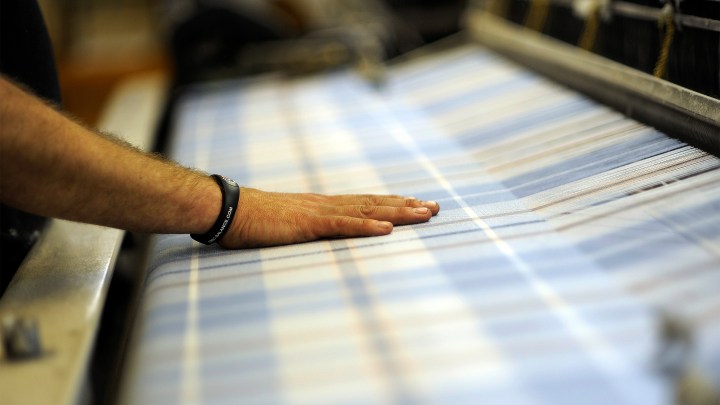
Britain’s textile industry gets an unexpected boost from COVID-19
Britain’s textile industry gets an unexpected boost from COVID-19

The coronavirus outbreak is a human tragedy and an economic disaster, but some businesses could in the long term do quite well out of it. Take Britain’s textile industry. Throughout the 1990s, British textile companies lost a lot of business to China as clothing retailers and brands in the United Kingdom turned en masse to the Far East for cheaper production.
But now the disruption in trade with China has made some of those retailers reconsider the wisdom of having long supply chains, and they’ve been turning back to British manufacturers.

“We’ve been getting a lot of inquiries solely due to the fact that retailers and brands need to be spreading their risk and placing orders locally and making sure the shops aren’t empty,” said Bhavik Master, boss of Paul James Knitwear, a knitted apparel manufacturer in the city of Leicester in the English Midlands.
Suddenly, security of supply — and not cost — is paramount. Although his factory is currently shuttered and his staff furloughed, Master expects a surge in firm orders as soon as the coronavirus crisis subsides.
“I think we’ll be stepping up production by at least 20 to 30%,” he told Marketplace.
Other textile companies in Leicester are also getting a boost from COVID-19, the disease caused by the new coronavirus. Alkesh Kapadia of Barcode Design, another local fashion manufacturer, said that he’d received a flood of orders from worried customers.

“They are concerned about getting stuff from China,” he said.
Manufacturers like Master and Kapadia have their own supply chain worries. Many of their raw materials come from abroad and from countries that have been hard hit by the coronavirus. Italy, for example, is a major supplier of yarn.

But Kate Hills of Make It British, a manufacturing advocacy group, said that British clothing retailers and brands are now focused on sourcing their fabrics domestically “so that in future the whole garment can be made in the U.K.”
When the disease finally recedes, won’t all these supply chain anxieties subside, too? Hills thinks not.
“I think the coronavirus is going to change the clothing industry’s mindset,” she said. “The industry will ask, ‘Do you want all your products made somewhere like China, or should you spread your risk and start making at least a percentage of your products much closer to homer, in the U.K.?’”
One of the biggest economic casualties of the crisis could be the international supply chain, and that, Hills believes, will help Britain’s textile manufacturers.
There’s a lot happening in the world. Through it all, Marketplace is here for you.
You rely on Marketplace to break down the world’s events and tell you how it affects you in a fact-based, approachable way. We rely on your financial support to keep making that possible.
Your donation today powers the independent journalism that you rely on. For just $5/month, you can help sustain Marketplace so we can keep reporting on the things that matter to you.


















